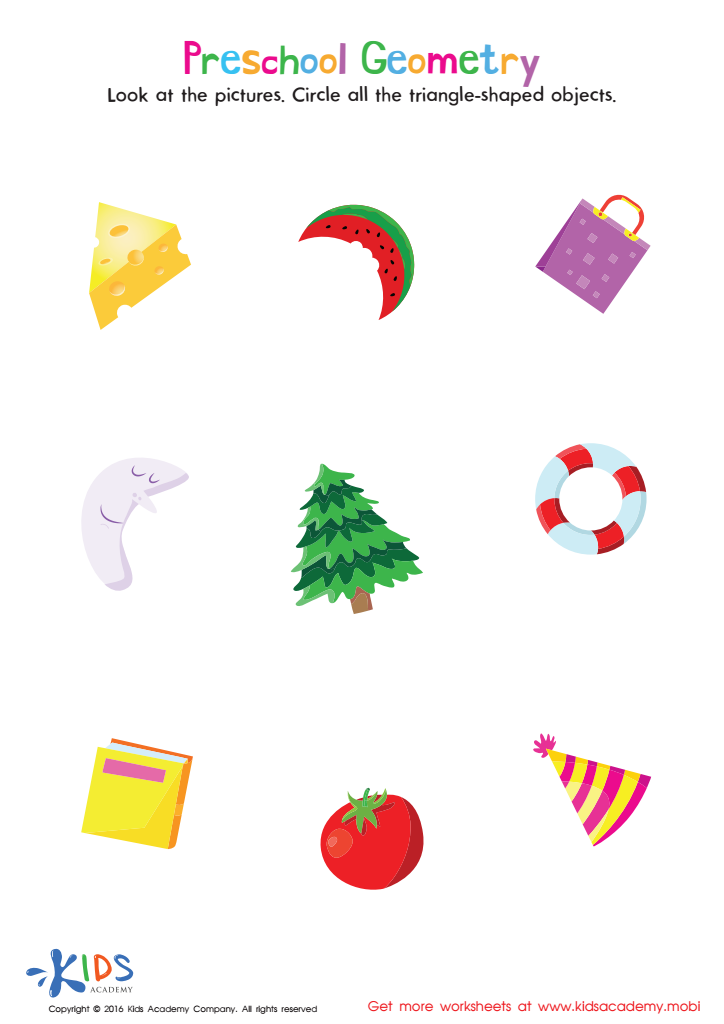Counting skills Geometry Worksheets for Ages 4-6
13 filtered results
-
From - To
Enhance your child's foundational math skills with our Counting Skills Geometry Worksheets designed specifically for ages 4-6. These engaging and interactive worksheets help young learners explore shapes, patterns, and spatial awareness while practicing counting in a fun way. Children will enjoy connecting numbers to geometric figures, reinforcing both counting and geometry concepts. Our printable resources are tailored to provide a colorful and stimulating learning experience, encouraging creativity and critical thinking. Ideal for home, preschool, or early grade instruction, these worksheets support early mathematical development and prepare students for more advanced concepts. Start your child’s learning journey today with our educational resources!
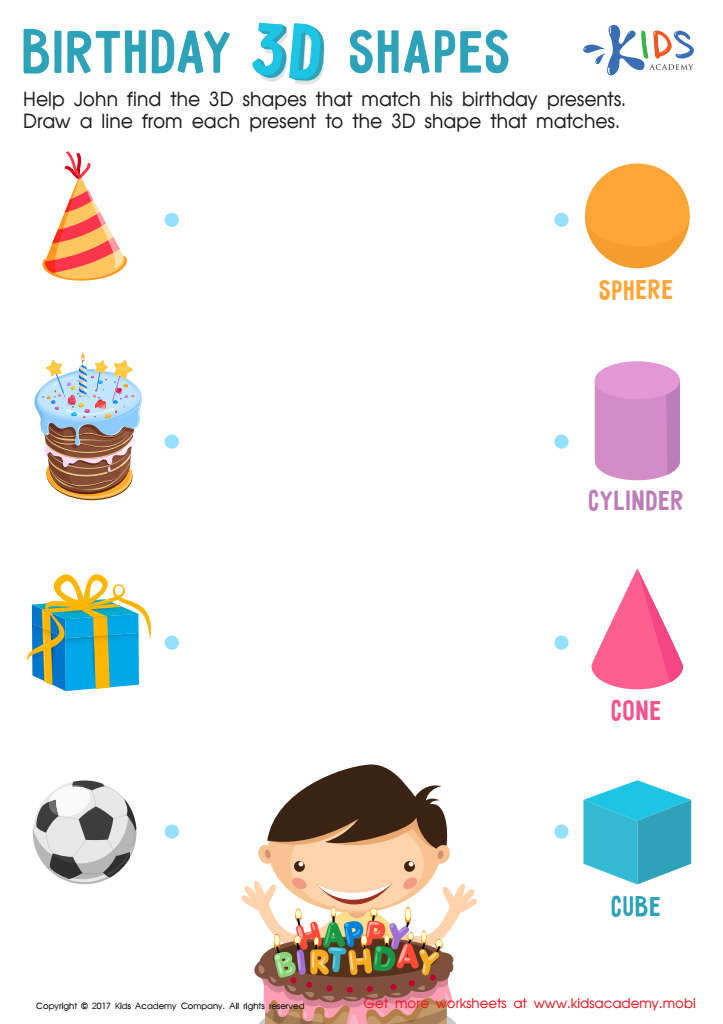

Birthday 3D Shapes Worksheet
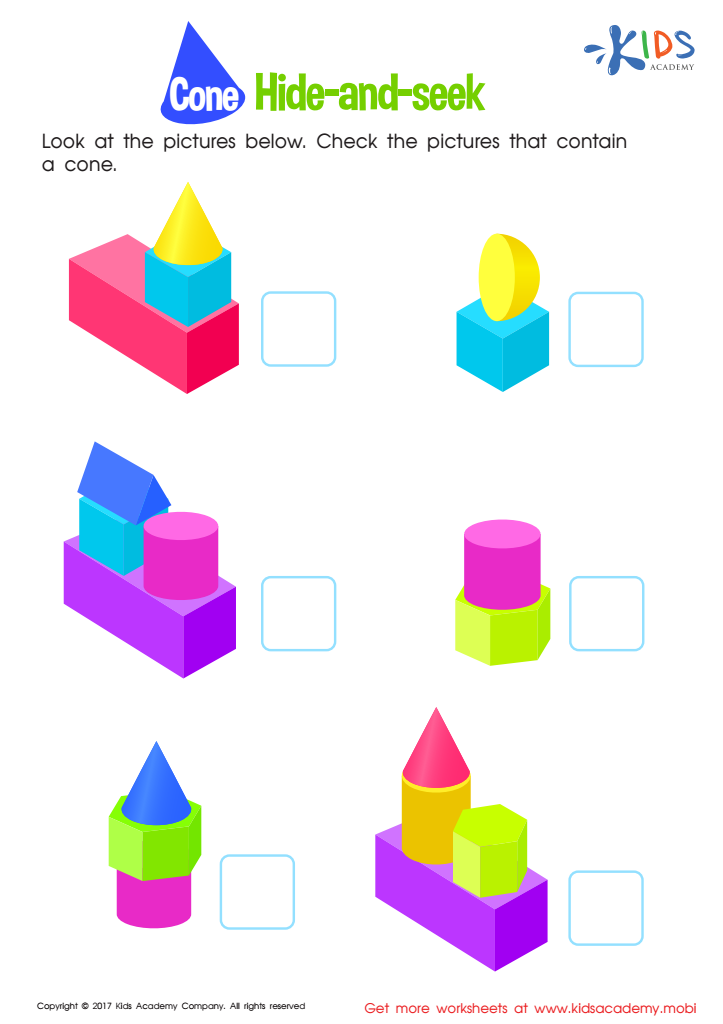

Cone Hide-and-Seek Worksheet
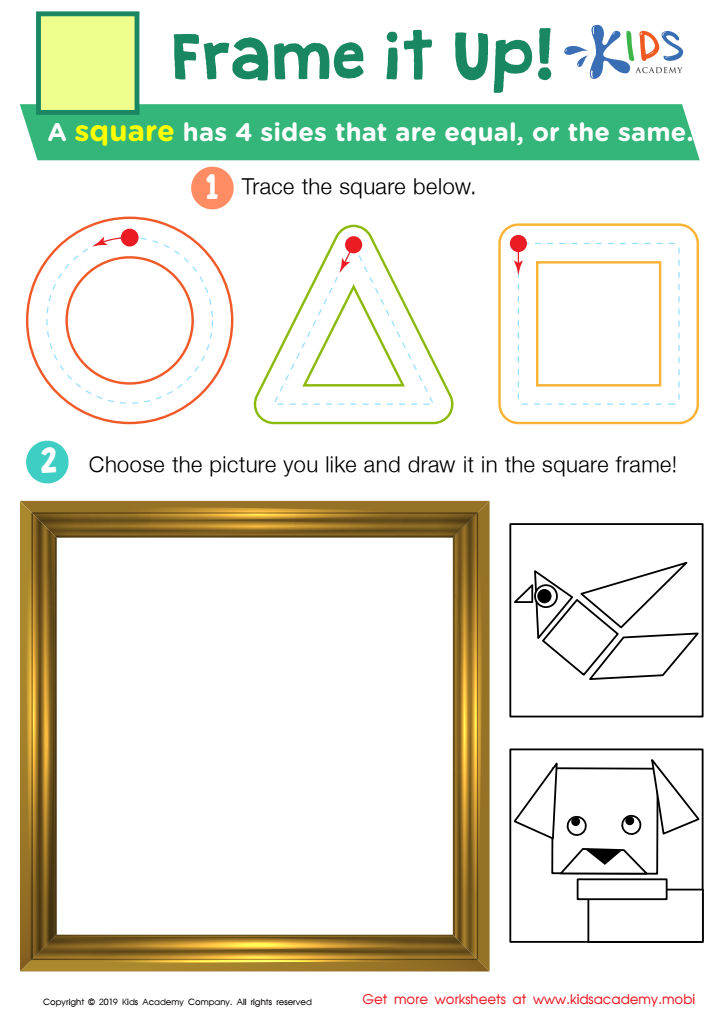

Frame it Up Worksheet
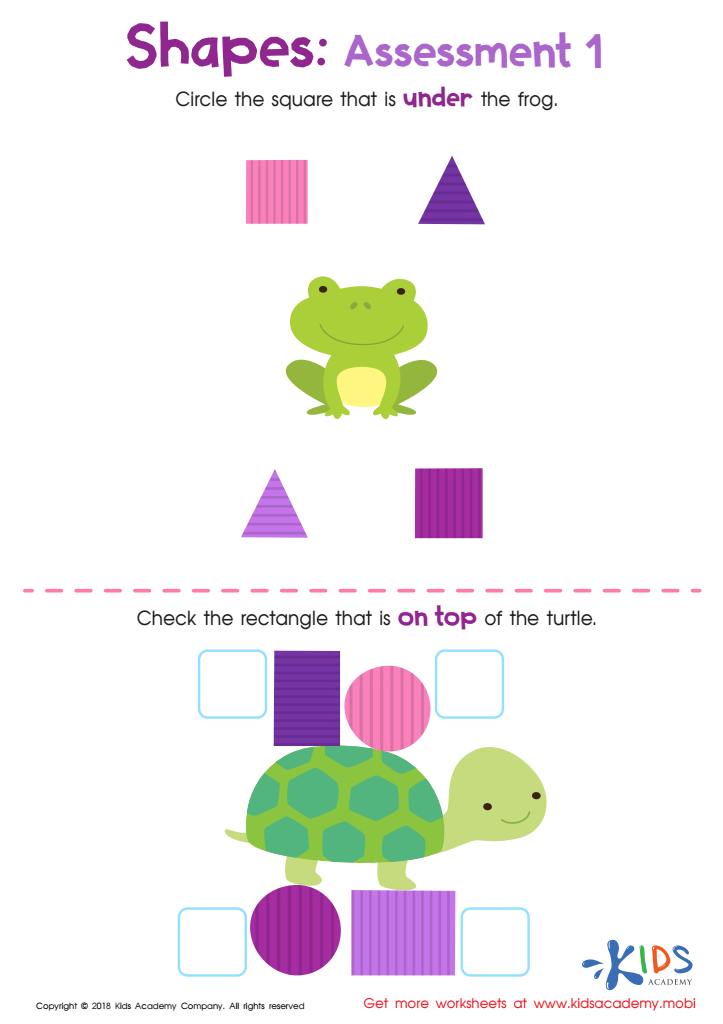

Geometry – Assessment 1 Worksheet
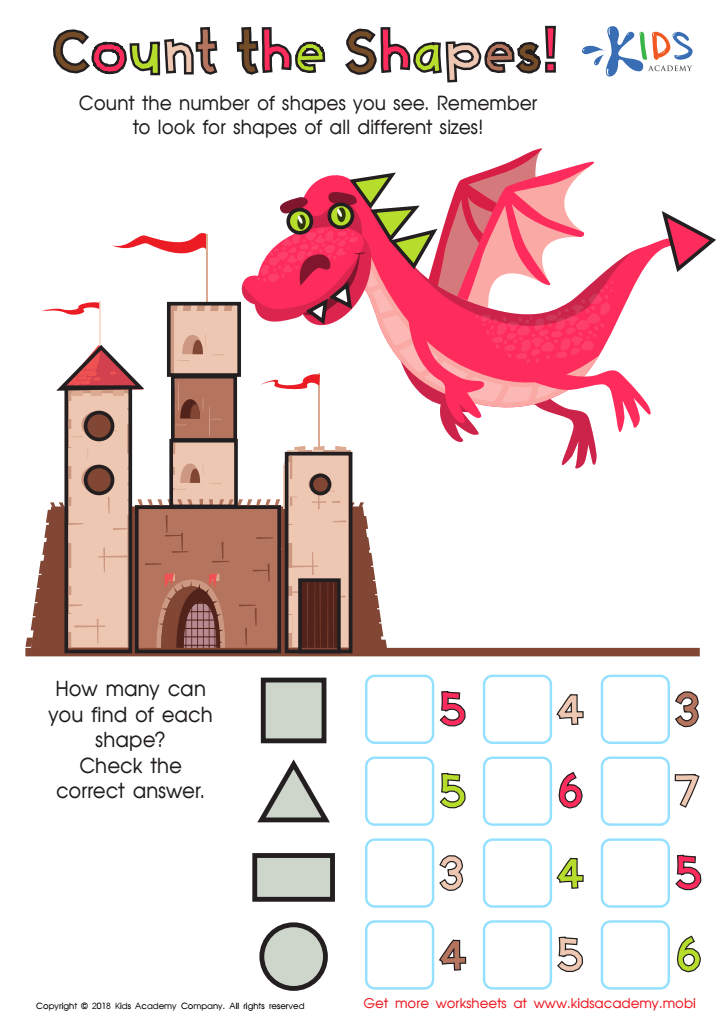

Count the Shapes Worksheet
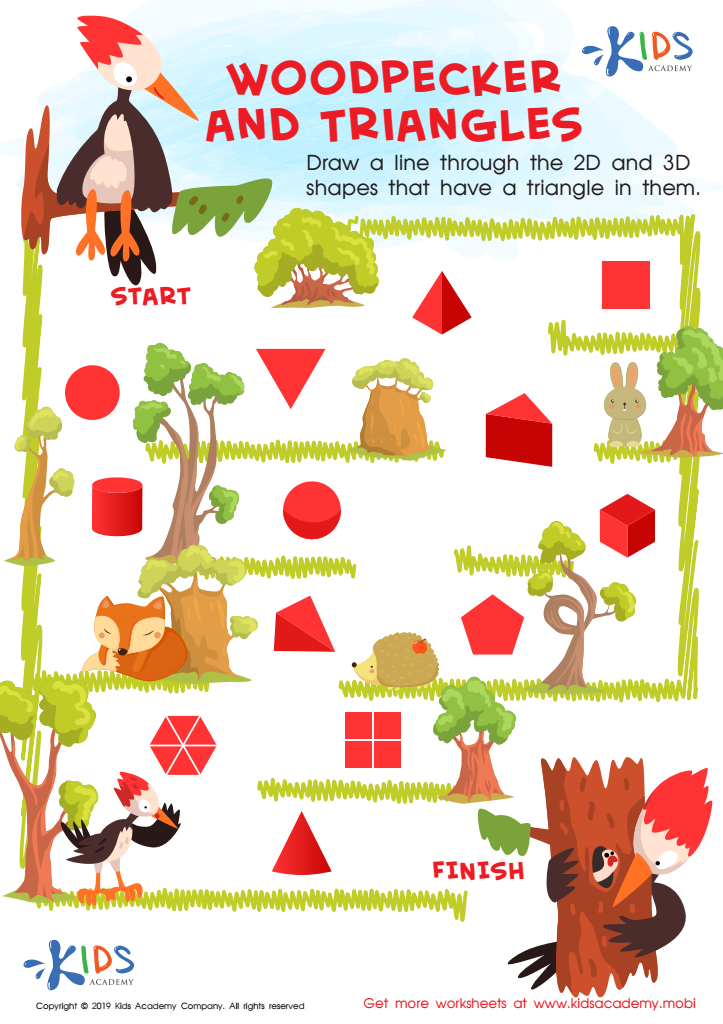

Woodpecker and Triangles Worksheet
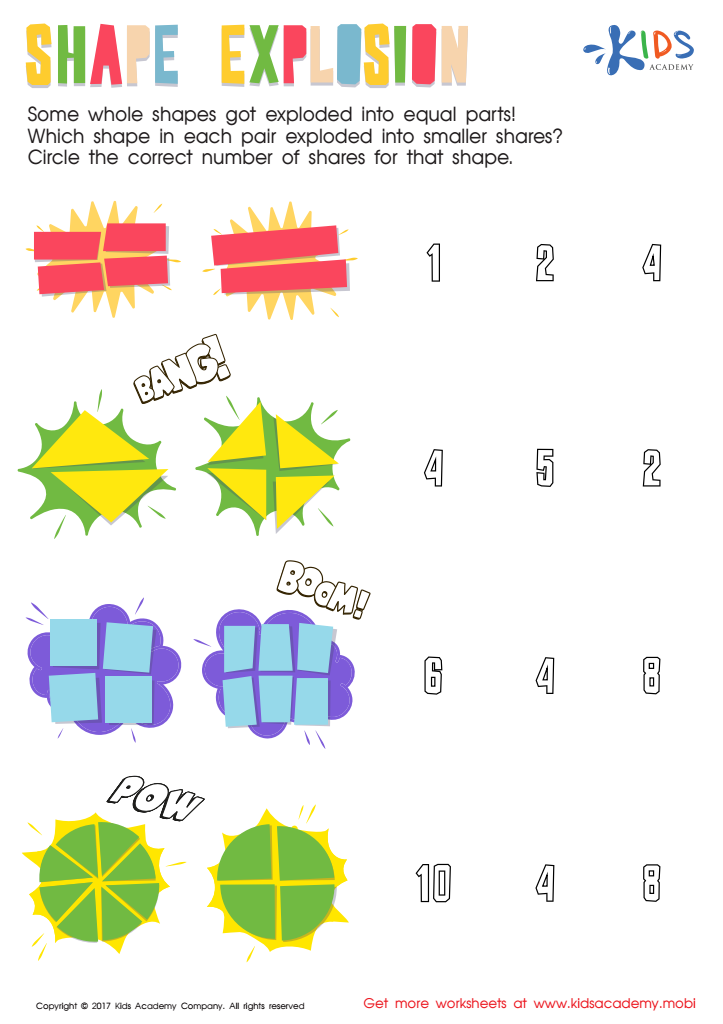

Shape Explosion Worksheet
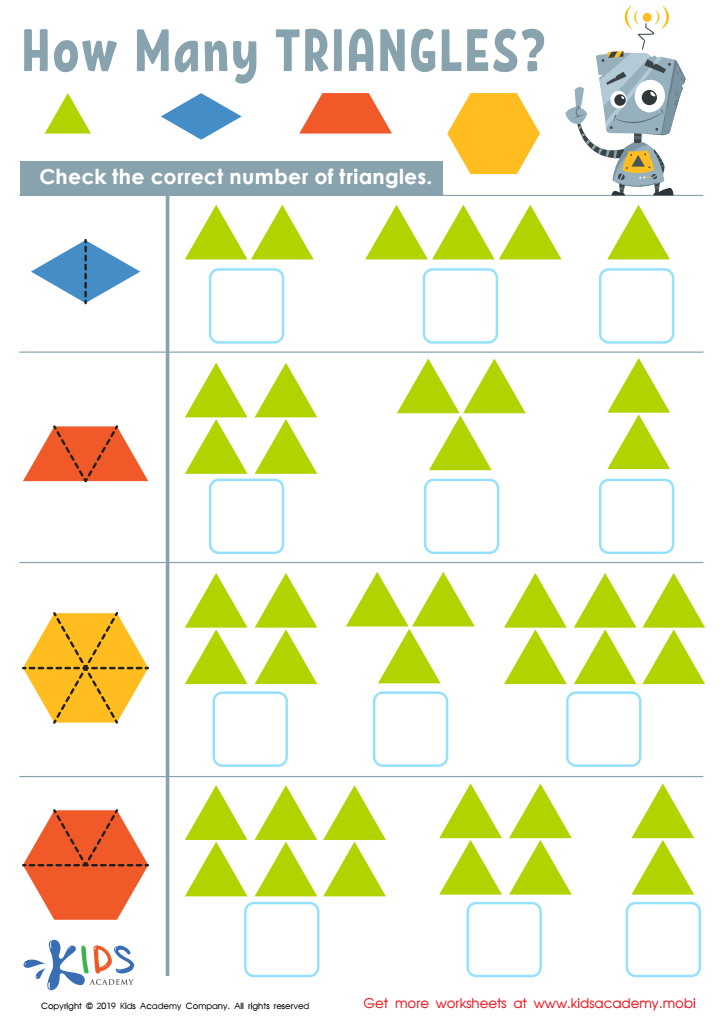

How Many Triangles Worksheet
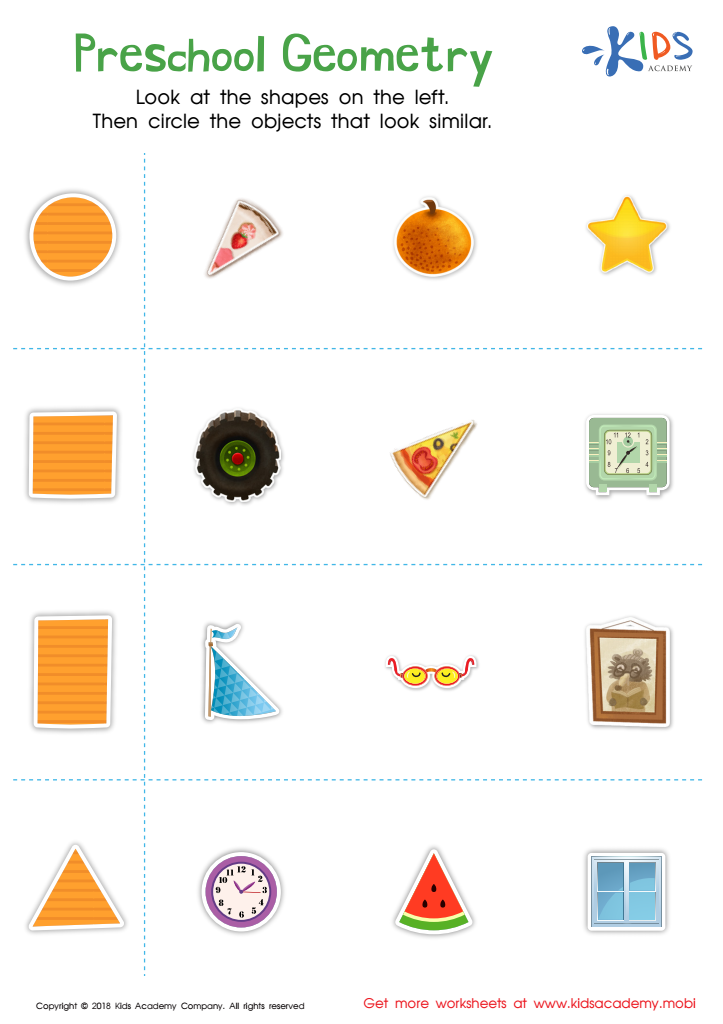

Preschool Geometry Worksheet
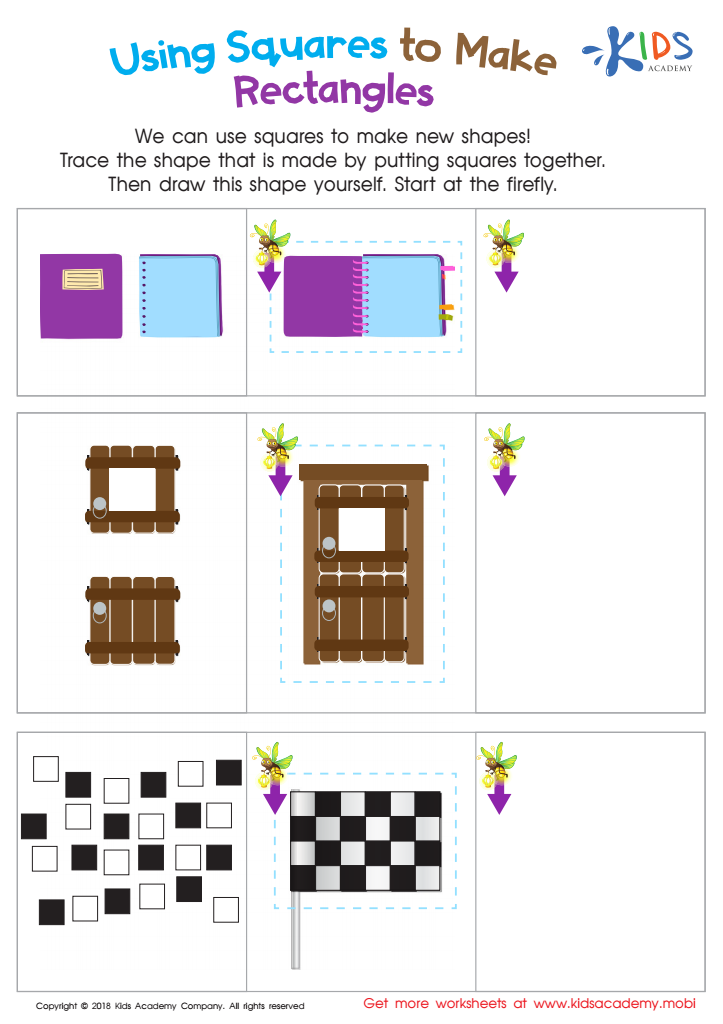

Using Squares to Make Rectangles Worksheet
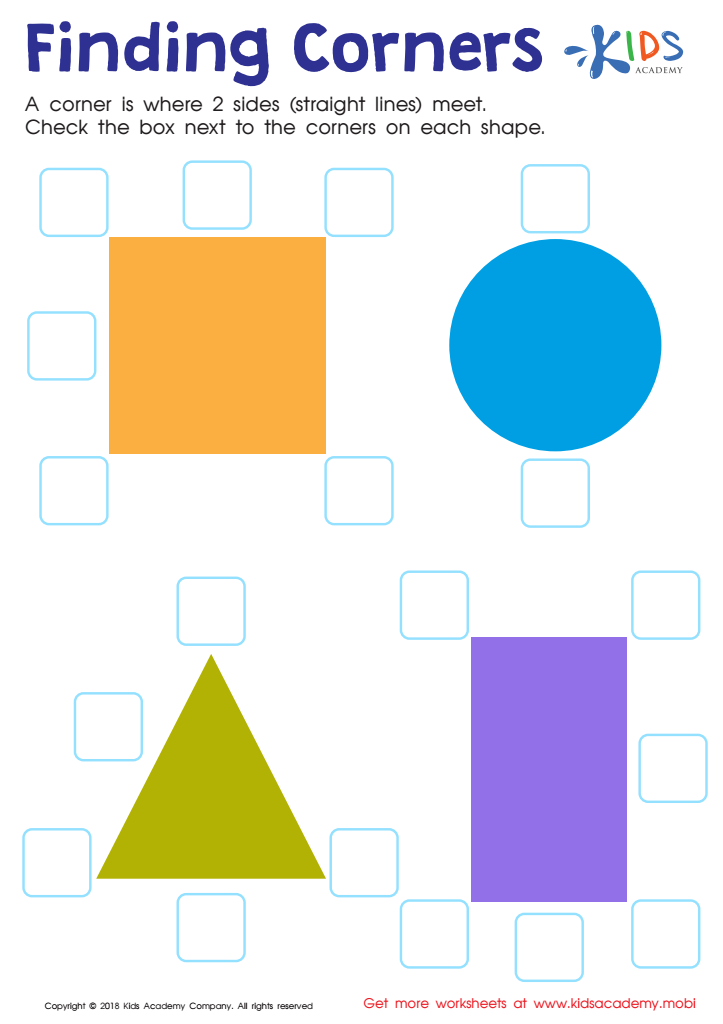

Finding Corners Worksheet
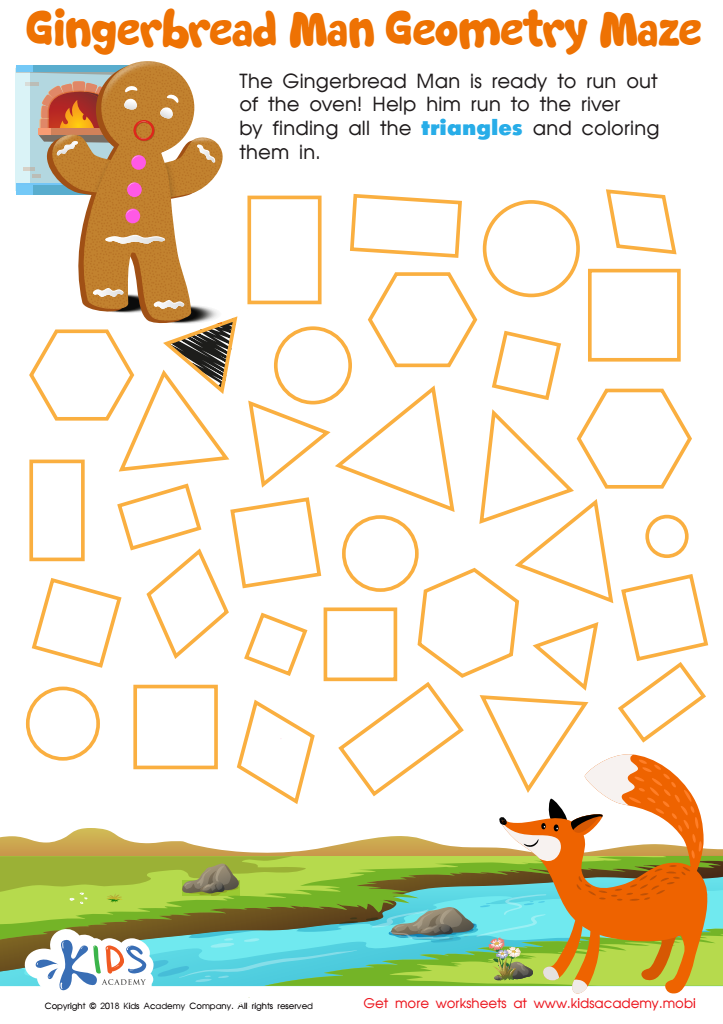

Gingerbread Man Geometry Maze Worksheet
Counting skills and geometry are fundamental areas of early math education, particularly for children aged 4-6. For parents and teachers, fostering these skills is essential for several reasons. Firstly, counting forms the basis of mathematics; understanding numbers and their relationships helps children with future mathematical concepts, aiding in their overall academic success. It also enhances their cognitive development by promoting logical thinking and problem-solving abilities.
Geometry, on the other hand, introduces children to shapes, spaces, and patterns, which helps in developing spatial awareness and critical thinking. Counting and geometry activities promote fine motor skills and enhance children's overall sensory experiences. Moreover, engaging in these areas allows young learners to explore their environment, understand the concepts of size, measurement, and comparison, and recognize patterns in everyday life.
Furthermore, these skills can be integrated with technology and play, making learning enjoyable and fostering a love for math from a young age. By prioritizing counting and geometry, parents and teachers can build a strong foundation that not only benefits academic learning but also nurtures curiosity and creativity, encouraging lifelong enthusiasm for learning. In essence, these foundational skills pave the way for future success in many aspects of a child's daily life.
 Assign to My Students
Assign to My Students












